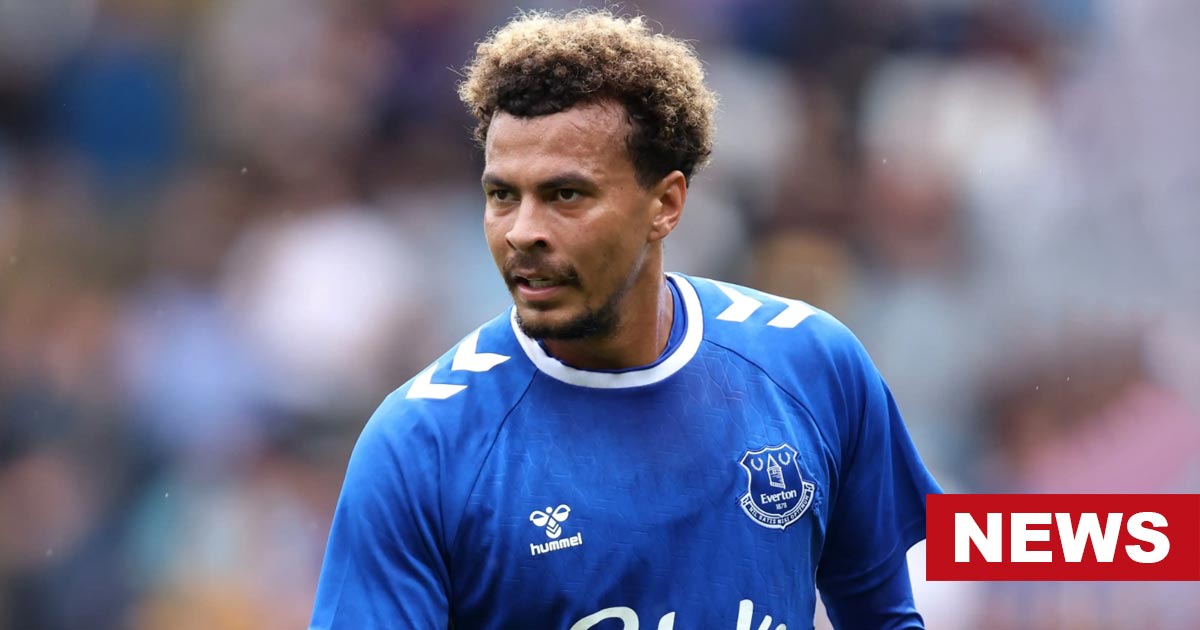A candid interview about English footballer Dele Alli’s mental health struggles shook the world. Alli disclosed that he contemplated retiring from his professional football career at the then age of 24 because of his mental health conditions that ranged from childhood trauma to substance use disorder.
Dele Alli rose to prominence as a young talent when he burst onto the scene at MK Dons at the age of 16. He quickly gained recognition while playing for Tottenham and even won the prestigious PFA Young Player of the Year award twice. He was hailed as a unique talent, but his trajectory took a negative turn following the departure of Mauricio Pochettino as the manager of Spurs.
When Jose Mourinho took over as the head coach of Tottenham in 2019, he failed to bring out the best in Alli. Since his transfer from Tottenham to Everton in 2022, Alli has encountered difficulties in rediscovering the form he exhibited during the early stages of his career.
In Dele Alli’s interview with Gary Neville on The Overlap, he opened up about the reasons behind these struggles. Alli said “It’s challenging to identify a specific moment.” He recollected a particularly distressing period during Mourinho’s tenure when he was 24 years old.
He vividly remembered a training session where he was excluded from the team, and it left him in a state of despair. He described standing in front of a mirror, deeply saddened by the thought of retiring at such a young age while engaging in the sport he loved.
This experience had a profound impact on Alli, and it became a heavy burden for him to bear. In addition, he shared that he sought rehabilitation to address his addiction to sleeping pills. The time spent by Dele Alli in rehab helped him acknowledge that addiction was not exclusive to him but rather a prevalent issue within the football community, often underestimated by others.
The demanding schedule of a professional footballer, with early morning training sessions and the adrenaline rush of games, often leads players to rely on sleeping pills to ensure adequate rest. Alli recognized that initially, these pills provided relief, but over time, they had adverse effects on his dopamine system, exacerbating his problems instead of alleviating them.
Dele Alli’s mental health struggles and the conversations around it helped raise his mental health self-awareness. In the interview, he expressed his hope that by openly discussing his experiences, he could raise awareness and offer support to individuals who might be facing similar challenges.
The “public confessions” also saw Dele Alli talk trauma relating to adverse childhood experiences. His difficult upbringing, experiences of sexual abuse, drug-dealing and drug-addiction experiences made his struggle with fame and athletic performance more harrowing. However, his life took a positive turn when he was adopted by a loving family.
Now, at the age of 27, he is determined to assist others who are struggling with similar issues. He acknowledged that his addiction had persisted for a long time, and he engaged in behaviors such as drinking in an attempt to numb his emotions. However, he came to understand that if these coping mechanisms are abused and used to escape or avoid facing underlying issues, they can ultimately cause significant harm.
The interview in which Dele Alli talks mental health struggles and recovery has gained support from his fans and peers alike. For instance, Tottenham striker Harry Kane and Alli’s current side Everton led the support for Dele Alli’s mental health conversation. Kane tweeted: “Proud of @dele_official for speaking out and sharing his experience to try and help others.” Everton also tweeted: “The Club has been supporting Dele in both his return to fitness and overcoming the personal challenges highlighted in his interview with The Overlap.”





















